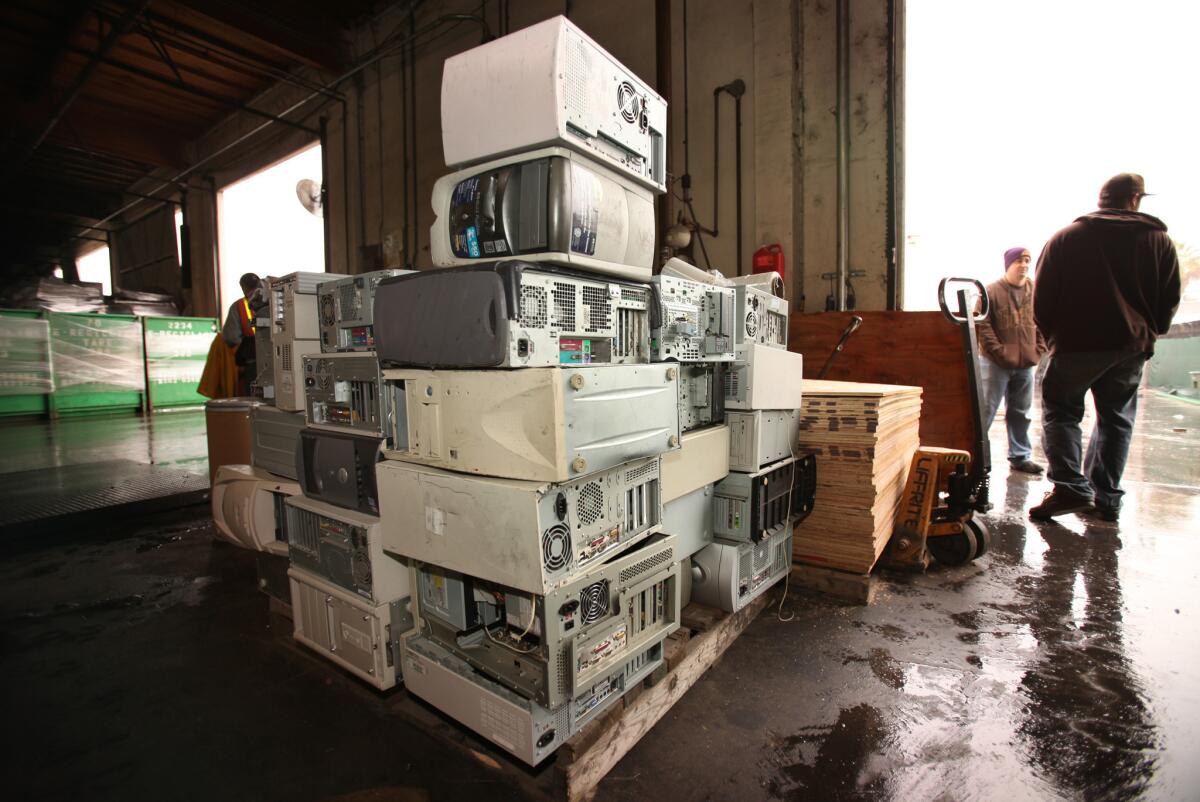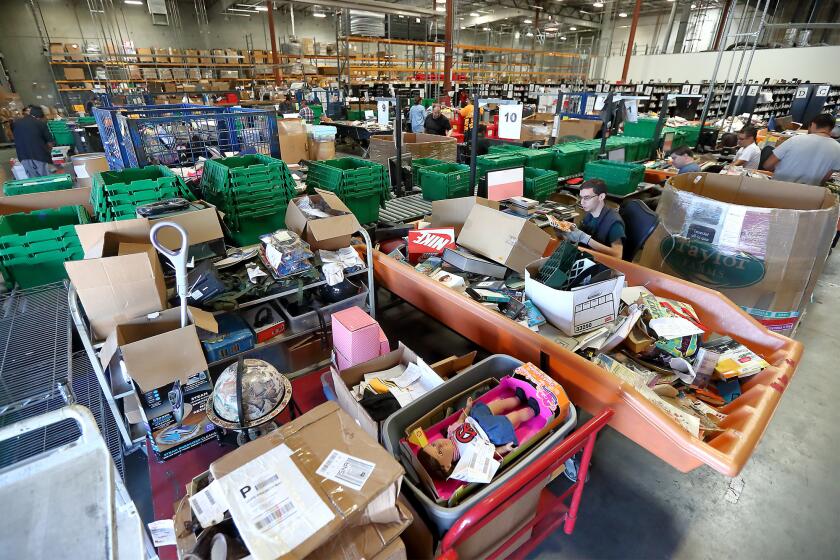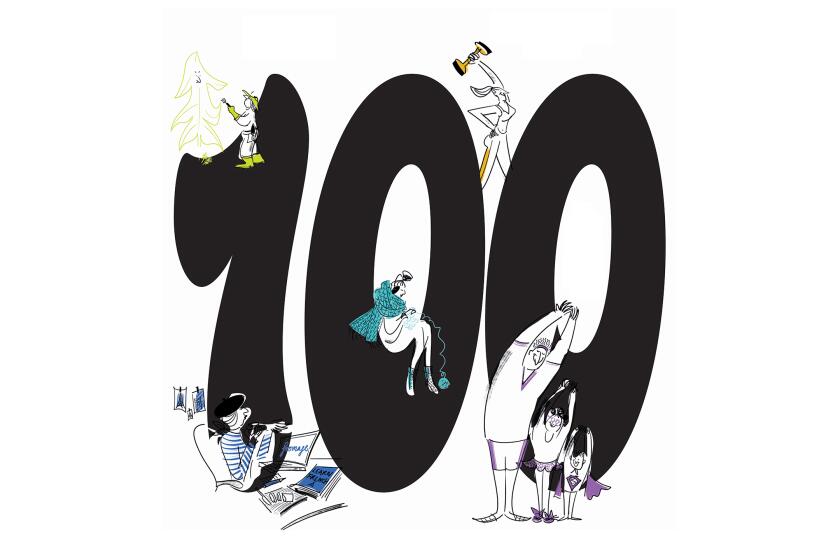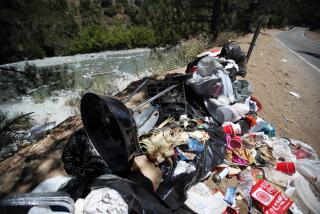Expert tips on decluttering your home during the coronavirus pandemic
In a recent decluttering webinar hosted by professional organizer Fay Wolf, people all over the country signed on to Zoom to get how-to tips while sequestered at home due to the coronavirus.
“There’s room in your life to do something right now,” said Wolf, author of “New Order: A Decluttering Handbook for Creative Folks (and Everyone Else).” “Now that we are at home we are faced with our stuff. But we have an opportunity to take action and feel better.”
People on the webinar confessed to feeling fearful, sad and jittery as they shared free guided-meditation apps and journaling strategies as well as their recent decluttering victories.
They are not alone.
On March 18, Goodwill Southern California closed its stores and donation centers in response to the escalating COVID-19 pandemic. By Tuesday, many of the centers were so overwhelmed by dropoffs that the nonprofit appealed to Los Angeles residents to stop.
“As much as we love to accept donations, we can’t take them right now,” said Goodwill spokesperson Marla Eby. “People are dropping things off, and it is becoming a health hazard, especially in the rain. We are asking people to organize their things at home and have them ready when we reopen.”
Goodwill SoCal has closed its doors and appealed to Los Angeles residents to stop leaving discarded items at donation centers. It can create a health hazard.
Orange County-based professional organizer Marla Stone, author of “The Clutter Remedy: A Guide to Getting Organized for Those Who Love Their Stuff,” isn’t surprised by the “corona cleaning.” “March is normally the month people clean out their garage regardless of the sequestering,” said Stone. “We’re like the bears that come out of hibernation.”
Most professional organizers have their own method. For Marie Kondo, it’s the KonMari Method. Wolf likes to use sorting bins labeled “donate,” “trash,” “recycle,” “shred” and “other rooms.”
Stone, a former psychotherapist, focuses on how people feel about their stuff. “I help them make good decisions,” she said. “That’s the most important thing. There is a huge push to get rid of stuff. When I go into a home I tell them, ‘You don’t have to get rid of anything.’ As soon as I tell people that, they start heave-hoing their stuff out of the garage.”
Staying home this weekend? We’ve got some ideas. Take care of your plants, make your house cozier, help neighbors and start planning your next trip.
In a recent interview, Stone offered tips on how to get organized while you’re self-isolating:
Don’t focus on getting rid of stuff
• Focus on making good decisions.
• Ask yourself: Is it useful? Does it serve a purpose? Is it sentimental? How sentimental?
• Do I love it? If it’s something you love and it makes you happy, then it’s a keeper.
• Take a moment and think 10 years ahead. Will this serve you 10 years from now? Will you still love it? Can you see your kids using it? This thinking is better than throwing away all of your stuff in a whirlwind.
Categorize your stuff
• Putting things away and being organized are not the same thing.
• Grouping items by category helps you to get rid of stuff. Stone said the main reason her clients remain disorganized is because they don’t do this.
• Fine-tune your categories. That way there is order. Organize your books. Contain items in the bathroom in zip-top bags. Put electrical cords in a bin. That way, you can see what you have and realize that you don’t need the objects.
• Focus on what you actually use. How many blenders do you have? How many dishes? Have they been sitting there for 16 years? If you have space and are sentimental about them, keep them; otherwise, get rid of them.
Use clear bins
• Clear bins are important for storage. When things are in boxes and bags you don’t know what’s in them.
The garage
• The garage is the most important space to organize. Stone usually suggests it as a place to start.
• Categorize and use clear and concise criteria. Ask yourself: Will I use this? And how often? Is it serving a purpose? Is it sentimental?
• If it’s something like camping gear and you don’t camp, ask yourself, “What’s this item doing in my real estate?” If that answer is nothing, pass it forward.
Interior spaces
• You only want items you use daily, weekly or monthly in your kitchen cabinets, closets and bathroom cabinets.
• If there are things, such as Christmas platters, that you use only a couple of times a year, put them in a bin and store them away from your everyday items.
Home office
• What do you use daily? Weekly? Monthly? Put what you don’t use in the closet. If you don’t have a closet? Then you don’t have space for all this stuff.
• Organize important papers when you finish organizing your office. You can’t categorize paper in a cluttered environment.

Think green
• Don’t put items that can be used in a trash can, dumpster or a junk truck. Think about individuals and organizations who might be able to use them.
• Consider using free e-waste and toxic waste disposal centers.
Where to donate now
• If your local Goodwill or Salvation Army donation center is closed, you can list things for free on Facebook Marketplace, the Nextdoor app or local online groups.
• Leave the item on your driveway or porch for pickup. Or place it on the sidewalk with a sign marked “free.”
• Donate to family, friends and neighbors. Stone developed membership sales group pages on Facebook so she could donate directly to people.
Selling your stuff
• You can sell any item you don’t want and make a profit using social media sales and online resources.
• Free online advertising helps you avoid shipping and returns. Companies such as Venmo and PayPal make it safe to accept and pay money, protecting both sellers and buyers.
• Make sure you communicate clearly about what you are selling, including any damage, scratches, discoloration or odors.
• If you’re a buyer, do your research and make sure it’s not an impulse purchase. Be careful when picking up an item.
• Try trading groups online where people barter for the things they want.
More to Read
Sign up for The Wild
We’ll help you find the best places to hike, bike and run, as well as the perfect silent spots for meditation and yoga.
You may occasionally receive promotional content from the Los Angeles Times.













